The upcoming World Cup qualifying clash between Italy and Israel in Udine has become a flashpoint for political tension, with fears that more pro-Palestinian protesters will gather outside the stadium than fans inside. Scheduled for next Tuesday at the Stadio Friuli, the match takes place against the backdrop of the ongoing Gaza war and rising global outrage.
Protests Overshadow the Match
Pro-Palestinian activists have already targeted Italy’s training camp in Florence, demanding that the game be canceled. Their demonstrations were part of a national strike that saw millions of people march across Italy in solidarity with Gaza.
“It’s not going to be a calm environment,” said Italy coach Gennaro Gattuso from the Coverciano training center. “There will be 10,000 people outside the stadium and 5,000 to 6,000 inside.”
As of Monday, only about 4,000 tickets had been sold for the game, signaling both public apprehension and the growing scale of planned protests.
UEFA and Local Authorities Under Pressure
UEFA had reportedly discussed the possibility of suspending Israel due to the war, while Udine Mayor Alberto Felice De Toni publicly called for the match to be postponed. However, Italy—desperate to avoid missing a third consecutive World Cup—is unwilling to take the risk of forfeiting the fixture.
“We have to play this match. Because if we don’t, we’ll lose it 3-0,” Gattuso explained, citing UEFA’s forfeiture rule. “(Italian Football Federation) president Gabriele Gravina explained that very well.”
Tensions Extend to the Pitch
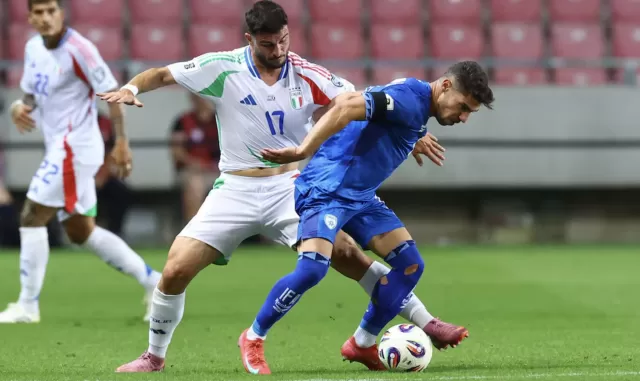
The political strain mirrors the growing friction between the two teams. Their previous encounter last month in neutral Hungary ended in a dramatic 5-4 victory for Italy, followed by tense exchanges between players after the final whistle. This next meeting arrives on a sensitive date—two years since Hamas’ October 7 attack on Israel that reignited the conflict.
Humanitarian Reaction and Global Impact
The protests are further fueled by Israel’s blockade of humanitarian aid missions to Gaza. The emotional toll of the crisis has resonated even within Italy’s squad.
“It’s upsetting to see what’s happening to innocent people and children,” Gattuso said. “It hurts your heart.”
In Norway, where Israel will play next, the Norwegian Football Federation announced that all profits from ticket sales for that match will be donated to Doctors Without Borders to support humanitarian relief in Gaza.
Italy’s Qualification Hopes Hang in the Balance
Both Italy and Israel are currently six points behind group leaders Norway. Only the top team qualifies directly for the 2026 World Cup in North America, while the runner-up faces the playoff stage—a round that has haunted Italy in the past, having been eliminated by Sweden in 2018 and North Macedonia in 2022.
“Considering that we’re trying to get to the World Cup and need to give our absolute all, I would have preferred to play a home game with the enthusiasm that we saw in Bergamo,” Gattuso said, referring to Italy’s 5-0 win over Estonia last month.
Heavy Security Deployment in Udine
Authorities are preparing for a massive security operation in Udine, reminiscent of Italy’s previous fixture against Israel in the same city last October. That match, despite attracting protests, went smoothly under tight police control and ended in a 4-1 victory for Italy.
This time, however, tensions are significantly higher, and officials expect managing the event to be far more challenging. With the countdown to kickoff underway, the focus remains divided between Italy’s World Cup hopes and growing calls for the game to be stopped altogether.
Also Read: Top 10 Indian Footballers Making Waves Nationally and Internationally


Disclaimer
Possible11 is a sports news and analysis platform designed purely for entertainment and educational purposes. All match previews, player insights, and team analyses are based on publicly available information and expert opinions. We do not promote or support betting, gambling, or real-money gaming in any form. Users are encouraged to enjoy our content responsibly and use it for informational purposes only.

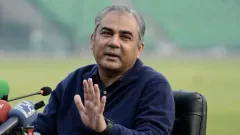




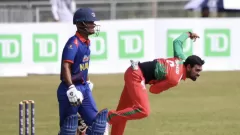
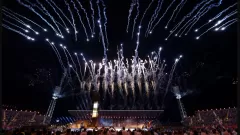







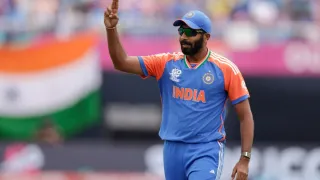
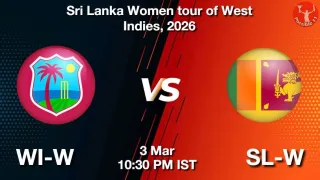




Give Your Feedback